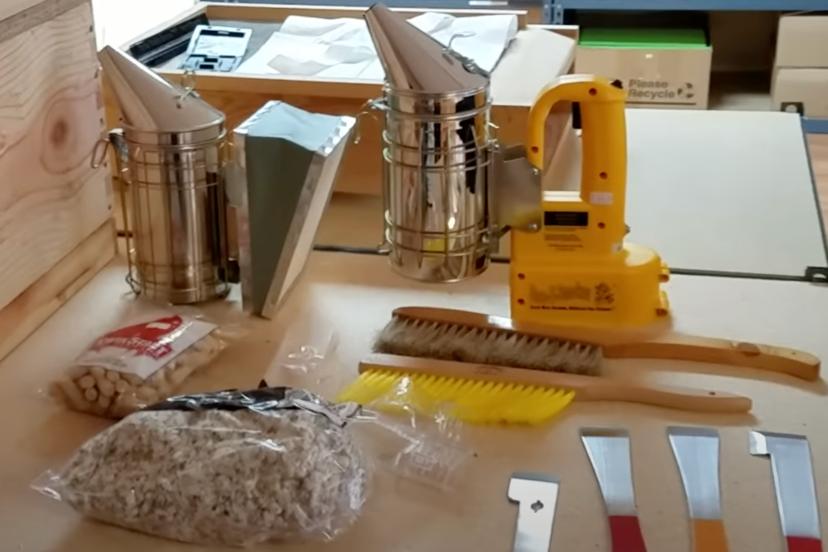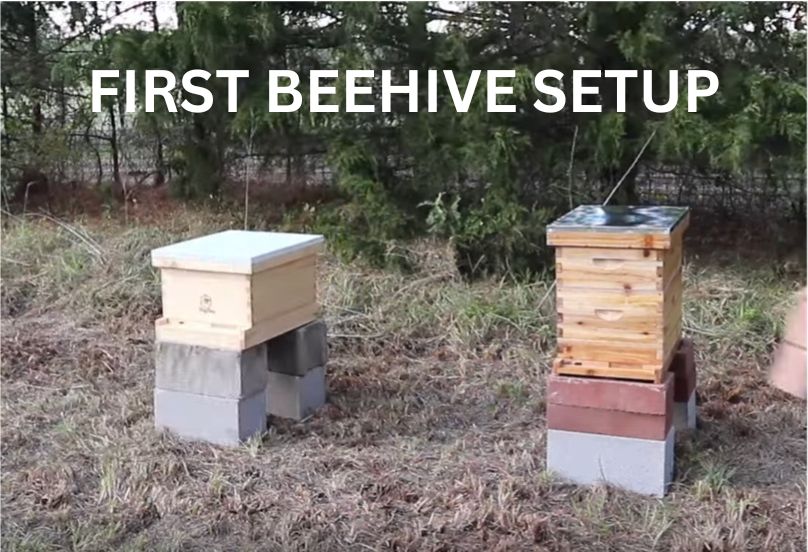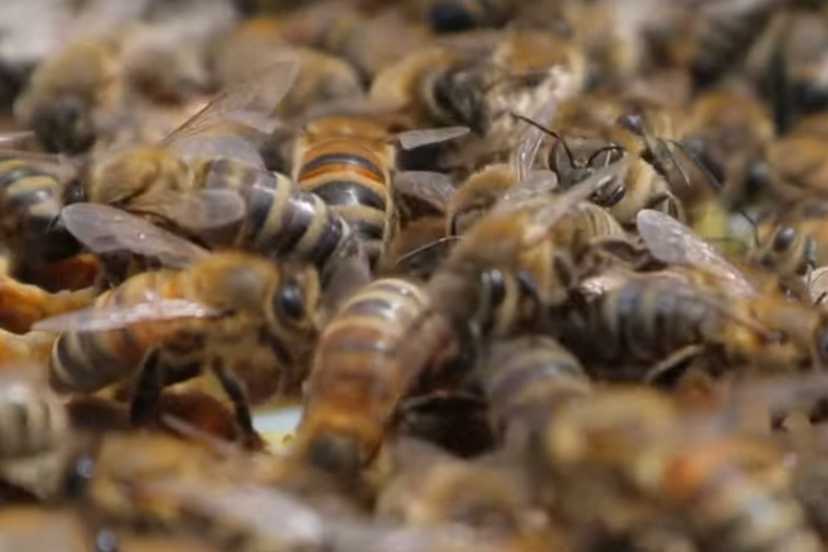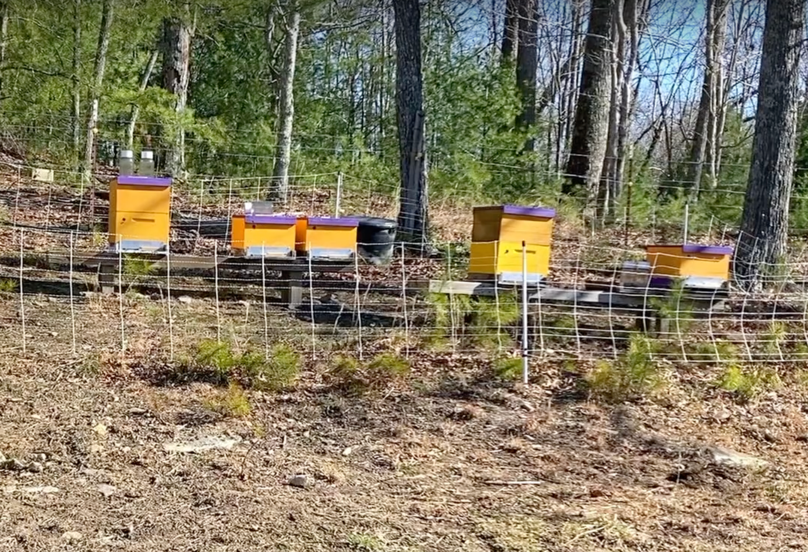Welcome, aspiring beekeepers and honey enthusiasts! So, you’re ready to dive into the sweet world of beekeeping, but suddenly you’re drowning in a sea of regulations thicker than honey itself.
Don’t worry, you’re not alone in this sticky situation. Did you know that beekeeping laws can vary wildly from one zip code to another? It’s true! In some places, you’re free to keep bees like it’s the Wild West, while in others, you need more permits than a nuclear power plant.
But fear not! We’re here to help you navigate this bureaucratic beehive. So, grab your reading glasses (and maybe a lawyer on speed dial), and let’s demystify the world of beekeeping regulations!
- 1. Local vs. State Regulations: Navigating the Legal Hive
- 2. Registration Requirements: Getting on the Books
- 3. Zoning Laws: Where Can You Keep Your Bees?
- 4. Hive Limits: How Many Is Too Many?
- 5. Swarm Management: Keeping The Peace
- 6. Disease Control: Staying On The Right Side Of Health Regulations
- 7. Honey Production And Sales: From Hive To Market
- 8. Urban Beekeeping: Special Considerations For City Dwellers
- 9. Insurance And Liability: Protecting Yourself And Others
- 10. Staying Informed: Keeping Up With Changing Regulations
- The Final Buzz
1. Local vs. State Regulations: Navigating the Legal Hive
When I started beekeeping, I thought the only rules were set by the bees. Boy, was I wrong! There’s a whole hierarchy of laws to navigate.
Understanding The Hierarchy Of Beekeeping Laws
First, understand the hierarchy: federal regulations at the top, then state laws, and finally local ordinances. They don’t always play nice with each other!
How To Research Your Local Ordinances
Researching local ordinances is crucial. Every town has its quirks. Some require hives to be a certain distance from property lines, others limit hive numbers. Start at your city hall or local government website. Don’t be shy about asking questions!
Pro tip: check with your homeowners’ association if you have one. I’ve seen perfect apiaries torn down because they violated HOA rules.
State-Level Regulations You Can’t Ignore
Now, state-level regulations are the big ones you can’t ignore. Most states require hive registration and some mandate inspections. I didn’t do this and a state inspector showed up unannounced!
Registration isn’t just red tape – it helps track disease outbreaks and can connect you with other beekeepers. Some states even offer perks for registered beekeepers.
Watch out for rules about moving bees across state lines and selling honey. I once tried to sell at a farmers market without realizing I needed a special food handling license. Oops!
These rules protect our bees, environment, and fellow beekeepers. Following them means you can keep your bees (and neighbors) happy without worrying about getting shut down.
My advice? Do your homework. Read up on regulations and join a local beekeeping association – they’re usually up-to-date on the latest rules.
2. Registration Requirements: Getting on the Books
When I first heard about hive registration, I thought it was just government nosiness. Boy, was I wrong! It’s actually crucial for being part of the beekeeping community.
Why Registering Your Hives Is Important
Why register? Well, it’s not just about rules. Once I registered, I started getting alerts about local disease outbreaks and invitations to workshops. It was like joining a secret club!
Plus, it helps track bee population health. I felt pretty proud when a researcher told me my hive data was helping them understand colony collapse disorder.
How To Register Your Apiary
Registering is usually simple. Most states have online systems now. Just fill out a form with your contact info and hive locations. There’s often a small fee, but trust me, it’s worth it.
Consequences Of Unregistered Beekeeping
Now, the consequences of unregistered beekeeping can be serious. We’re talking fines, mandatory inspections, and sometimes even having to get rid of your bees!
I knew a guy who thought he could fly under the radar. It worked great until a neighbor complained about bees in their pool. Next thing you know, he’s got inspectors at his door and a hefty fine.
Unregistered hives can’t benefit from state programs like pest management assistance or disaster relief either.
On the flip side, being registered can open up cool opportunities. Some states offer special programs, like discounted equipment or priority access to queen bees. It’s like getting a VIP pass to the beekeeping world!
So, my advice? Get registered! It’s usually quick, often painless, and always worth it. Think of it as your official welcome to the wonderful world of beekeeping. You’re not just a person with some bees anymore – you’re a bona fide, card-carrying beekeeper!
3. Zoning Laws: Where Can You Keep Your Bees?
Let me tell you, figuring out where you can legally keep bees can be tricky! I when I got a notice saying my suburban hives violated zoning laws. What a buzzkill!
Residential vs. Agricultural Zoning Considerations
First, residential vs. agricultural zoning. Many places restrict or forbid beekeeping in residential areas, while agricultural zones are usually more bee-friendly.
Before I moved to an agricultural zone I moved my hives to a friend’s farm outside the city. A hassle, but at least the bees had more flowers!
Setback Requirements And Property Boundaries
Setback requirements and property boundaries are another headache. Some places require hives to be a certain distance from property lines, roads, or even your house. I once played bee Tetris, moving my hives three times in one season to meet all requirements!
Pro tip: Always check local regulations before setting up. It’s easier to get it right the first time than to move established colonies.
Dealing With HOAs And Neighborhood Restrictions
Don’t forget about HOAs and neighborhood restrictions. I’ve heard horror stories of beekeepers forced to remove hives due to HOA rules.
I lucked out with my bee-friendly neighborhood, but some beekeepers get creative. A friend keeps hives on her office building’s roof!
If you’re facing strict HOAs, try educating them about bee benefits. Sometimes, a little honey goes a long way in sweetening the deal! Offering free pollination for neighborhood gardens can also win over the community.
Remember, these laws aim to keep everyone safe and happy – bees, beekeepers, and neighbors alike. Do your homework, check local zoning laws, talk to your HOA, and chat with neighbors. It might seem like a lot upfront, but it avoids future headaches.
Can’t keep bees at home? Don’t give up! Look into community apiaries or partnering with local farmers. Where there’s a will, there’s a way to keep bees!
4. Hive Limits: How Many Is Too Many?
When I first started beekeeping, I thought more hives meant more honey. Boy, was I in for a surprise! Turns out, there’s such a thing as too many bees in one place.
Understanding Hive Density Regulations
Understanding hive density regulations is crucial. Most areas have limits on how many hives you can keep per property size. I once got a stern talking-to from a local inspector because I’d squeezed one too many hives into my backyard. Oops!
These rules aren’t just bureaucratic nonsense. They’re about balancing bee populations with available resources and minimizing nuisance to neighbors. Trust me, you don’t want to be known as the neighborhood “bee menace”!
Scaling Your Apiary Within Legal Limits
Scaling your apiary within legal limits takes some planning. I like to start small and gradually increase. It’s like playing Tetris with beehives! Check your local ordinances before adding hives. Some places require registration if you go over a certain number.
Exceptions For Agricultural And Commercial Beekeeping
Now, exceptions for agricultural and commercial beekeeping do exist. If you’re pollinating crops or running a honey business, you might be allowed more hives. I have a buddy who keeps dozens of hives on his farm. But he had to jump through some regulatory hoops to make it happen.
Remember, more hives doesn’t always mean more honey. Too many hives in one area can lead to resource competition. I learned this the hard way when my honey yields dropped after adding my fifth hive in a small space.
The key is finding the sweet spot – enough hives to meet your goals without overwhelming local resources or breaking laws. It’s a balancing act, but getting it right is oh so satisfying!
5. Swarm Management: Keeping The Peace
Let me tell you, nothing gets the neighbors buzzing like a swarm of bees! Swarm management is as much about keeping peace with your two-legged neighbors as it is about managing your six-legged friends.
Legal Responsibilities For Swarm Control
First off, legal responsibilities for swarm control. Most places require beekeepers to take reasonable steps to prevent and manage swarms. I learned this the hard way when a swarm from my hive decided to set up shop in my neighbor’s barbecue grill. Talk about a spicy cookout!
Proper Swarm Capture And Relocation Techniques
Proper swarm capture and relocation techniques are crucial. I always keep a “swarm kit” ready – a box, a sheet, and some lemongrass oil. I once caught a swarm hanging from a stop sign. Felt like a superhero in a bee suit, saving the day!
Notification Requirements For Neighboring Properties
But here’s the tricky part – notification requirements for neighboring properties. Some areas require you to inform neighbors if you’re capturing a swarm nearby.
I once had to go door-to-door explaining why I was about to shake a tree full of bees. Got some interesting looks that day!
Prevention is key. I regularly check for swarm cells and split hives when needed. It’s like giving your bees more legroom before they decide to fly coach.
If a swarm does happen, act fast but safely. I’ve seen folks do some crazy things trying to catch swarms. Remember, no honey is worth a trip to the ER!
Most importantly, educate your neighbors. I hold a yearly “meet the bees” day. It’s amazing how a little honey and knowledge can turn bee fear into bee cheer!
Swarm management is about being a good neighbor – to your bees and your human community. Get it right, and you’ll be the neighborhood hero. Get it wrong, and well… let’s just say not everyone appreciates surprise bee visitors!
6. Disease Control: Staying On The Right Side Of Health Regulations
When it comes to bee health, ignorance isn’t bliss – it’s a recipe for disaster! I learned this the hard way when I ignored some suspicious-looking brood. Let me tell you, dealing with a full-blown disease outbreak is no picnic.
Mandatory Disease Reporting Requirements
First up, mandatory disease reporting requirements. Most places require you to report serious diseases like American Foulbrood (AFB) or European Foulbrood (EFB).
I once had to report a suspected AFB case. Felt like I was turning myself in! But it’s crucial for controlling outbreaks.
Approved Treatment Methods And Restrictions
Approved treatment methods and restrictions are a minefield of regulations. Some treatments are fine, others are a big no-no.
I once used an unapproved treatment and nearly lost my beekeeping license. Now I triple-check everything I use.
Quarantine Procedures And Compliance
Quarantine procedures and compliance are serious business. If you’re unlucky enough to get a quarantine order, follow it to the letter. I had a hive quarantined once and couldn’t move anything without permission. It was like bee house arrest!
Prevention is your best friend. Regular inspections, good hygiene practices, and staying educated on disease symptoms are crucial. I attend every bee health workshop I can find. Knowledge is power, folks!
If you do spot something iffy, don’t panic, but don’t ignore it either. I keep my state apiarist’s number on speed dial, just in case.
Remember, these regulations aren’t there to make your life difficult. They’re about protecting all bees – yours, mine, and wild ones too. It’s a bit like herd immunity for bees.
Staying on top of health regulations might seem daunting, but it’s part of being a responsible beekeeper. Plus, healthy bees make for happy beekeepers. And isn’t that what we’re all buzzing for?
7. Honey Production And Sales: From Hive To Market
When I first started selling honey from my backyard hives, I had no clue about the regulations involved. Boy, was I in for a surprise!
Food Safety Regulations For Honey Processing
Food safety for honey processing isn’t as simple as you’d think. While honey is considered low-risk by the FDA, there are still rules to follow. Your processing area needs to be clean and sanitary – I learned this when an inspector frowned at my old wooden spoon. And here’s a pro tip: never heat raw honey above 118°F, or you’ll destroy its natural goodness. Trust me, I made that mistake once!
Moisture content is crucial too. I bought a refractometer to ensure my honey stays below 18.6% moisture. It’s been a game-changer in preventing fermentation.
Labeling Requirements For Honey Products
Labeling requirements? That’s another minefield. Did you know you can’t label it as “honey” if you add anything, even a sprinkle of cinnamon? I that out after printing a bunch of useless “cinnamon honey” labels. Oops!
Your label needs the product name, net weight in U.S. and metric, your business details, and any required statements. Font size matters too – it’s based on your container size and needs specific placement. Who knew beekeeping involved so much typography?
Permits Needed For Selling At Farmers Markets And Stores
As for permits, each state has its own rules for farmers markets and stores. You’ll likely need a temporary food establishment permit for markets. Selling in stores? That might require a food processor’s license and possibly a wholesaler’s license.
My advice? Keep meticulous records of everything – hive locations, harvest dates, processing amounts, sales. It’ll save you if questions ever arise.
It’s been a journey full of sticky situations, but seeing people enjoy my honey makes it all worthwhile. If you’re just starting, take it one step at a time. Before you know it, you’ll be a pro at navigating the sweet world of honey sales!
8. Urban Beekeeping: Special Considerations For City Dwellers
Let me tell you, keeping bees in the city is a whole different ballgame from my rural setup. When I lived in a big city I thought I wouldnt’ be able to keep bees at all.
Noise And Nuisance Ordinances
First off, noise and nuisance ordinances. You’d think bees would be quiet neighbors, right? Well, try telling that to Mrs. Johnson next door who swore my hives were “swarming her petunias”.
I had to get creative with hive placement to keep the peace. Most cities have rules about how close hives can be to property lines. In my case, it was 25 feet. I learned that one after a stern talking-to from the local bylaw officer.
Flight Path And Barrier Requirements
Flight paths are another big deal in urban beekeeping. You can’t just let your girls zoom wherever they please. I had to set up some clever barriers to encourage them to fly up and over fences instead of through my neighbor’s backyard barbecue. A simple screen or fence about 6 feet high does the trick. It’s like a bee highway system!
Water Source Regulations In Urban Areas
And don’t even get me started on water sources. In the country, my bees have a nice pond nearby. In the city? Not so much. Did you know bees need water just like us? I didn’t at first, and couldn’t figure out why they were hanging out in my neighbor’s dog bowl. Now I keep a shallow dish with some pebbles for them to land on. It’s like a bee spa!
Most urban areas require you to provide a water source within a certain distance of your hives. For me, it was within 10 feet. It keeps the bees happy and out of your neighbor’s pool.
Urban beekeeping has its challenges, but with a little creativity and a lot of communication with your neighbors, it’s totally doable. Just remember to check your local regulations before you start. Trust me, it’ll save you a lot of headaches down the road!
9. Insurance And Liability: Protecting Yourself And Others
When I first started beekeeping, insurance was the last thing on my mind. But after a neighbor’s allergic reaction scare, I quickly learned its importance.
Types Of Insurance For Beekeepers
There are a few types of insurance we beekeepers should consider. Liability insurance is crucial – it protects you if someone gets stung on your property or if your bees cause damage elsewhere.
Some beekeepers also get property insurance for their equipment. And if you’re selling honey, product liability insurance is smart. It’ll cover you if someone claims your honey made them sick.
Liability Considerations And Best Practices
For liability considerations, prevention is key. Good fencing and clear “Caution: Bee Area” signs go a long way. Keep your hives well-maintained and don’t overstock your apiary. An overcrowded hive is more likely to get defensive and sting.
Always inform your neighbors about your bees. I bring them honey as a peace offering. It’s amazing how a jar of the sweet stuff can turn a potential complaint into a supportive neighbor!
When And Why To Consider Incorporation
As for incorporation, consider it if your beekeeping grows beyond a hobby. I incorporated when I started selling at multiple farmers markets. It provides extra protection for your personal assets if something goes wrong.
The timing depends on your situation, but if you’re making significant income from beekeeping or expanding your operation, it’s time to think about incorporating. Just remember, it comes with additional paperwork and tax considerations.
Looking back, I wish I’d taken insurance and liability more seriously from the start. It might seem like a pain, but trust me, it’s worth it for peace of mind in this sweet but sometimes sticky business!
10. Staying Informed: Keeping Up With Changing Regulations
Let me tell you, keeping up with beekeeping regulations can be as tricky as handling a feisty queen bee! When I first started, I had no clue how often these rules could change.
Resources For Tracking Beekeeping Law Updates
I’ve found some great resources for tracking law updates. The American Beekeeping Federation’s website is a goldmine for national and state-level regulations. I also check my state’s agriculture department website monthly.
Joining Local Beekeeping Associations For Support
But here’s a pro tip: join your local beekeeping association. It’s been a game-changer for me. They are usually on top of any regulatory changes and can give you a heads-up before official channels do. Plus, they’re a great support network. When our city considered banning urban beekeeping, our association rallied and won the battle!
Advocacy And Your Role In Shaping Future Regulations
Don’t underestimate your role in shaping future regulations. We’ve got a responsibility to advocate for our bees and our craft. I’ve learned that showing up to town hall meetings can make a real difference.
I once spoke at a county meeting about allowing beekeeping in residential areas. I was nervous as heck, but they listened! Now we have reasonable regulations that work for everyone.
Remember, regulations are often shaped by those who show up. So don’t be shy about getting involved in local politics when it comes to beekeeping issues. Your voice matters!
Staying informed and engaged might seem like extra work, but it’s worth it. It’s not just about keeping your operation legal – it’s about contributing to a sustainable future for beekeeping in your community. So keep buzzing, stay informed, and speak up for your bees!
The Final Buzz
Congratulations! You’ve just completed your crash course in Beekeeping Law 101. Armed with this knowledge, you’re now ready to navigate the complex world of apiary regulations like a pro.
Remember, being a responsible beekeeper isn’t just about tending to your hives – it’s about being a good neighbor and steward of the environment.
Stay informed, follow the rules, and don’t be afraid to advocate for sensible beekeeping laws in your area. Now go forth, tend to your bees, and may your honey be as sweet as your compliance with local regulations! Happy (and legal) beekeeping!




